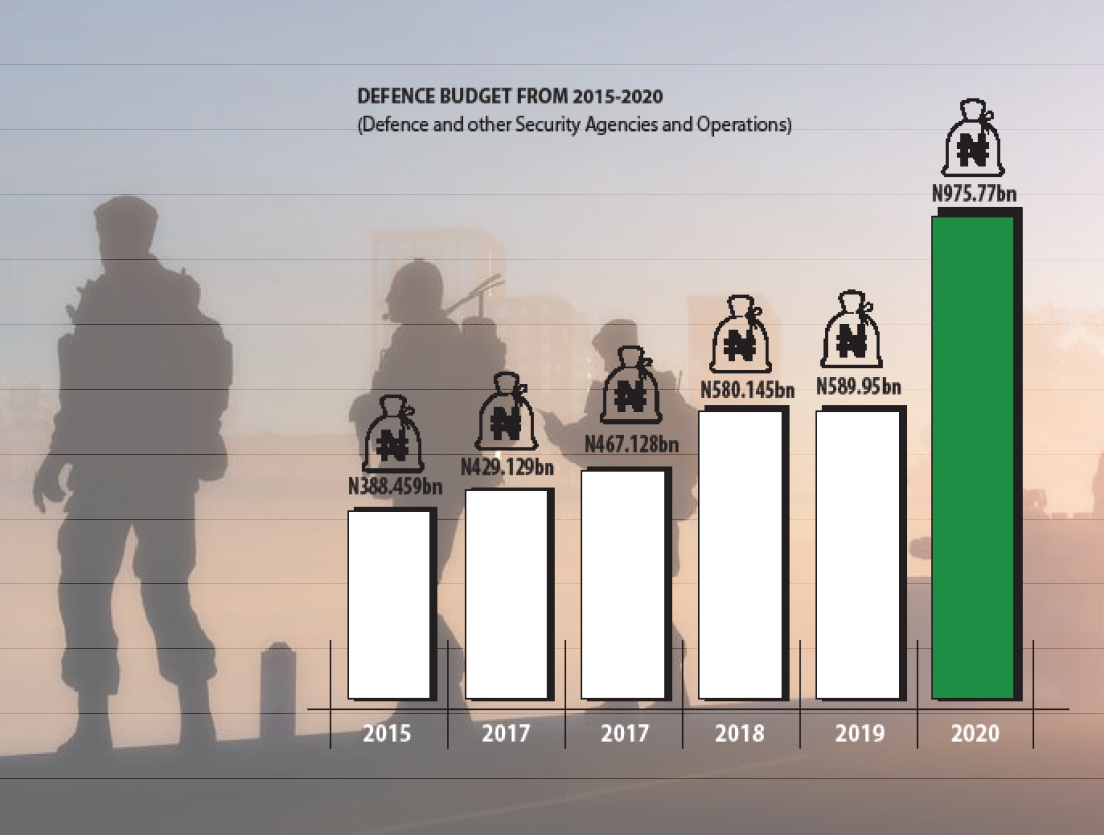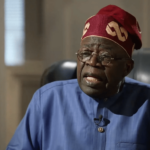For more than a decade now, the Northeast part of Nigeria has been reeling under one of the most violent insurgencies in the world, with enormous social and economic consequences for the millions of inhabitants of that region. Although the Boko Haram insurgency started since 2009, available records show that no fewer than 37,000 people were killed in 2,021 attacks by Boko Harama insurgents between June, 2011 and June, 2018. The United Nations’ High Commission for Refugees (UNHCR) estimates that the insurgency has displaced 2.4 million people and put more than seven million at risk of starvation. UNHCR equally stressed that the conflict has led to the degradation of infrastructure, including the closing or destruction of more than half of the region’s schools, and the near-complete breakdown of an already weak public health system.
The Northeast geopolitical zone of Nigeria comprises the following six states: Adamawa, Bauchi, Borno, Gombe, Taraba and Yobe. Three out of the six states-Adamawa, Borno and Yobe are the worse hit by the insurgency. Borno alone, which has faced greater devastating attacks out of the three worse hit states is on the fringes of the Lake Chad Basin, where huge economic activities such as fishing, trading and commercial transportation have now been largely imperilled. Maiduguri, the capital of the state is now a major theatre of sorts for hundreds of thousands of internally displaced persons (IDPs) made up of largely women and children.
But just as the Buhari administration, which came to power in 2015 was struggling to contain the insurgency in the Northeast, there was an upsurge in another spectre of insecurity in the forms of banditry, kidnapping and bloodletting across other parts of Nigeria. This is much more rampant in the North West region comprising Jigawa, Kaduna, Kano, Katsina, Kebbi, Sokoto and Zamfara. Last year alone, from Zamfara to Katsina, bandits wreaked havoc on hapless citizens, turning over 8,000 women and many more children into widows and orphans. Also, over 10,000 houses and silos were destroyed by the bandits.
In terms of the cost of containing the rising spate of insecurity across the country, it is estimated that about N3 trillion has been budgeted for the defence sector between 2015 and 2019, with arguable insignificant achievements in terms of the provision of safety and security of lives and property.
In 2015, N388.459 billion was allocated to the sector; in 2016, N429.129 billion was allocated, N467.128 billion in 2017; N580.145 billion in 2018 and N589.95 billion in 2019.
For 2019, the Nigerian Army got a total allocation of N228. 415 billion, out of which N208.792 billion was allocated as total recurrent, while N19. 623 billion was allocated as total capital expenditure.
The Nigerian Navy in the 2019 budget got a total of N101.391 billion, with N74.240 billion as total recurrent, leaving N27.151 billion as total capital allocation.
Also, in the 2019 defence budget, the Nigerian Air Force was allocated a total of N114.835 billion, N69. 784 was allocated for total recurrent leaving N45.051 as total capital allocation.
However, in 2019, Nigeria ranked as the third country where the impact of terrorism is very high with a score of 8.597 on a scale of 0-10 on the Global Terrorism Index (GTI), behind Afghanistan and Iraq.
Syria, Pakistan and Somalia are fourth, fifth and sixth respectively on the list with better scores than Nigeria.
According to the GTI, deaths from terrorism in Nigeria rose to 2,040 in 2018, a 33 per cent increase. This increase followed a steady decline in deaths since 2014.
It added that terror-related incidents increased by 37 per cent from 411 in 2017 to 562 in 2018. The increase, it said, was due to a substantial escalation of violence in herders/farmers clashes, whilst Boko Haram recorded a decline in deaths from terrorism.
Evidently, the evolving nature of insecurity in Nigeria has morphed from mainly terrorism and insurgency to banditry.
Between late last year and early part of this year, the dangerous spate of banditry in the country was highlighted by the emergence of new battlefronts in Kaduna and Niger states, in addition to Zamfara and Katsina which have been so since 2017.
The Nigerian military has commenced several internal security operations in the regions in an attempt to curb the activities of bandits.
Presently, the military is also grappling with a recent upsurge in attacks by insurgents in the Northeast. The terror groups appear to be actively attempting to infiltrate major cities.
The huge budgetary allocations to the defence sector seem not to have addressed the failure in intelligence gathering and inter-agency collaboration.
It appears since the insurgency started defence intelligence agencies have as yet not infiltrated any of the groups.
Apparently, there is no inside information about Boko Haram and or Islamic State in West African Province (ISWAP) capacities.
The military operational and tactical commands, according to some security analysts, seem to lack knowledge of Boko Haram’s capability and their plans. Nigeria, such analysts say, is therefore fighting the war “blind”.
The chatter among security experts is that the military should end its tradition of secrecy in its budget expenditure, particularly its procurement processes.
The argument that defence budgets are kept secret for national security concerns does not hold water. Evidently, the opacity in defence spending has not solved the menace of insecurity in the country.
A security expert, Kabir Adamu, told Daily Trust Saturday that there is a lack of accountability as well as the absence of a transparent mechanism to monitor the procurement processes in the military.
He said the military should urgently put in place an evaluation and monitoring system in its defence industry to end the difficulty in auditing its capital expenditure.
He noted that no amount of money sunk into such a system which lacks transparency, would yield positive results.
It has also been noted that another serious challenge is the numerical manpower of the armed forces of Nigeria, which has been identified as an area that must be addressed.
It was gathered that with combined manpower of not more than 200,000 personnel, the military which is also carrying out policing functions across the country is overstretched.
The ratio of soldiers per citizens in Nigeria is said to be grossly inadequate to address the lingering insecurity.
Another obstacle that the minister has to tackle is the seeming international conspiracy against Nigeria on the acquisition of modern military weapons and equipment.
The government, it was gathered, has been frustrated in transactions involving weapons and equipment acquisition which have dire effects on the operational capacity of the military to fight insecurity in the country.
It was learnt that despite a new government-to-government policy adopted to boycott third-party vendors, weapons and equipment paid for don’t get delivered on time, sometimes weapons paid for are delivered four or five years later.
Defence spokesman, Brigadier General Onyema Nwachukwu in an interview with Daily Trust Saturday, said the denial in the acquisition of military hardware and equipment is a challenge for the armed forces.
He said, “We have issues of denial in the acquisition of military hardware and equipment which are very important for us to prosecute and conduct the various operations across the board, so that challenge is there.”
He explained, “When you are talking about budgets, when you are talking about recurrent expenditure, these are things that you must do, when you talk about capital expenditure, you are talking about acquisition, what is the manpower of the armed forces as it stands today?”
“What is the population of Nigeria as it stands today? We are talking about 200 million people, what is the strength of the armed forces vis-a-vis the population of the country?” he said.
He added, “We are talking about budgets, the military has advocated for alternative sources of funding outside the budget, Nigerians must take ownership of their armed forces, if you want a lame-duck armed forces, that is what you would get.”
He said, “If you want the armed forces that went to Liberia and liberated Liberians, that went to Sierra Leone and liberated the people, that went to Sudan and mediated for the restoration of peace, if you want that kind of armed forces, then Nigerians must take ownership of the armed forces, they must fund the armed forces.”
Nwachukwu said, “Do research on other climes and see the funding of their armed forces, do a comparative study and you would understand where we are coming from, security is not cheap, without security, there cannot be social-economic development.”




